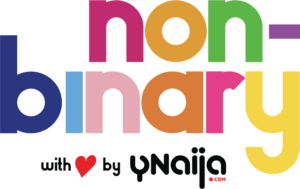By Joanne Ike
Somewhere in a bus park, a little girl with cerebral palsy called Esther begs. She drags herself from bus to bus, her knees supported by slippers thinned from over use. Her hands and legs are grazed by stones and sand leaving bleeding marks that she barely notices.
As she moves, busy Nigerians rush out of her way, not wanting to be tainted by her but she pays no mind to them. While her younger sister is fed a free lunch at school, Esther must beg for her lunch.
Even though primary education is technically free and compulsory, for Esther, it remains out of reach. And to what benefit will an education be for her, anyways, when she has no hopes of being employed.
Sadly, Esther’s case is only one of many.
As at 2020, there are reportedly 27 million Nigerians living with some form of disability, the most common of which are visual impairment, hearing impairment, physical impairment and intellectual impairment.
After 9 years of advocacy by disability rights groups and activists, the Discrimination Against Persons with Disabilities Prohibition Act was just signed into law on January 23rd by the president, Muhammadu Buhari.
With greater than 12% of Nigerians faced with some form of disability, the question arises as to why it has taken so long.
Historically, our bias against disabled people arises from cultural beliefs where disabilities are viewed as curses or punishment from the gods. Therefore, people with disabilities are seen as cursed or punished, people to be avoided lest we become party to this curse.
Despite the fact that we claim to have moved away from such myths and superstition, the stigma surrounding people with disability remains, so ingrained within our society that it is not always obvious. We need to interrogate ableism, which is the prejudices against disabled people and do away with ableist language that maintains and reinforces oppressive systems.
In 2011, the WHO report on disabilities outlines a bidirectional relationship between disability and poverty. This means that a disabled person is more likely to be poor and remain poor than his able-bodied peers. This is because while the able-bodied man is given the opportunity to ‘hustle’ and navigate through socioeconomic positions, our biases against people with disabilities force them to remain firmly within the poverty bracket, representing the poorest among the poor.
They face less access to education. They are passed over by employers in favour of their able-bodied peers. If they are employed, they earn less than their able-bodied peers. Even when they have access to education and gainful employment, life is still a challenge. For Lucy Ejike, Nigerian Paralympic Champion, getting to her lectures at university meant having to climb up a two-story building every day with her crutches.
For Cobhams Asuquo, Nigerian singer and songwriter who was born blind, getting access to braille teaching material proved extremely difficult. According to him, if they were available, there were very expensive.
The fact is that our society has been designed around the able-bodied man, casting aside the people with disabilities. Because of this lack of inclusivity when designing buildings and public amenities, they have limited access to transportation, health services, public buildings, things the able-bodied man takes for granted.
They face social exclusion and are targets of acts of violence. Not to mention, that they are also noticeably absent in politics and public offices. All of these contributes to making people with disability less productive as adults, forcing many of them to rely on the goodwill and charity of others.
But these people are not charity cases. When our ableism sinks so deep that it is woven within our buildings and vehicles, educational system and employment processes, even sympathy is discriminatory. Of what use is sympathy to a man who must sit in his wheelchair outside his bank and hope that someone will go in for him and collect his money?
It is time to stand for a more inclusive society that enables and empowers people with disabilities to thrive and flourish as independent individuals. Each must take responsibility within their own immediate environment.
To put it practically, as a school owner, it is your responsibility to ensure that you make education accessible for both the able bodied and the disabled by inclusion of teaching materials such as braille, keyboards with voice over functions and equipment such as cerebral palsy chairs and so on.
As a company owner, it is your responsibility to ensure that people are being recruited and paid without bias.
Buildings must be adjusted. Vehicles must be made wheel chair accessible. It is not enough to make laws. Society itself must be restructured from the inside out.
Because until we recognize people with disabilities as, not charity cases, but full human beings, with goals and dreams, who deserve as much access to gainful employment, education and health care as any other person, the bill passed in January will not bring about the change we need.





